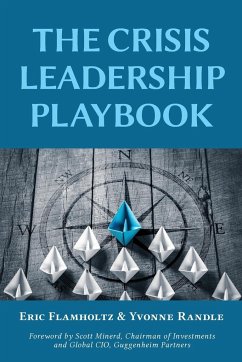"Black Swan events" are supposed to be rare. However, during the past 20 years there have been several so-called "Black Swan events," occurring just about every ten years, including: the Covid-19 Pandemic of 2020; The Great Recession of 2008-9; The attack on the World Trade Center, 2001; and the "Dot. Com" Bust of 1999-2000. The challenge to leadership of all types of organizations (businesses, not-for-profit, and governmental) from the crises caused by so-called "Black Swan events" is typically vast and almost always unprecedented. These crises require quick, thoughtful, and decisive responses. This book provides a "playbook" to help leaders facing crises understand and successfully address crises. Specific examples of organizations that have experienced a variety of crisis are presented and analyzed to help the reader understand different types of organizational crises and how leaders actually dealt with them. The organizations experiencing crises that are examined include American Express, Chrysler, Disney, Kodak, International Harvester/Navistar, Osborne Computer, Sears, UAL, and Westfield. Some of these case examples illustrate success in addressing a crisis, while others illustrate failures. Although all crises are unique, our research shows they have certain things in common. From the analysis of these actual case examples, we develop a "playbook" that includes key lessons, general principles, and tools for successfully leading and managing crises. As described in this book, each crisis requires a different "leadership playbook" or set of initiatives. Successful implementation of each set of initiatives, in turn, requires the use of a set of key tools. The book includes specific tools for identifying an organization's susceptibility to a crisis, tools for "crisis planning," as well as tools for identifying and effectively managing aspects of the organization's culture that may be contributing to or inhibiting its ability to address the crisis. The overall goal of this book is to provide the perspective, insights, lessons and tools that will enable leaders to create their own playbook that will help overcome crises and position their organization's for continuing success.








